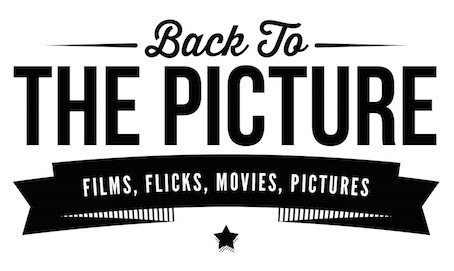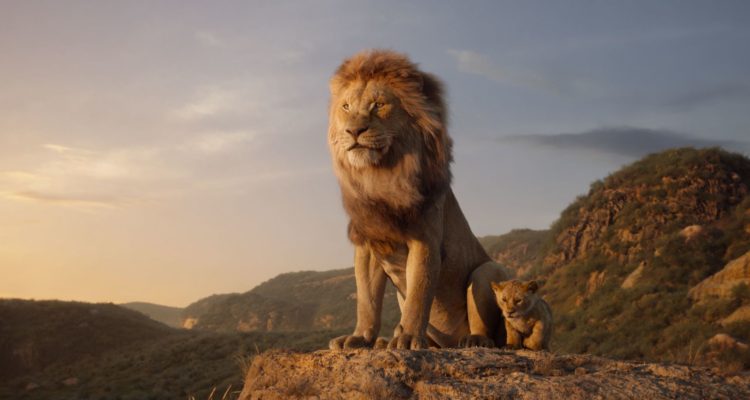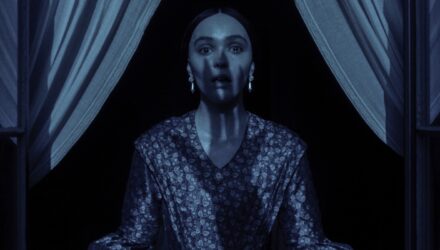Maybe more of the same isn’t really all that good of an idea after all.
Like the early 90s animated classic, The Lion King follows a young lion cub named Simba (JD McCrary & Donald Glover) as he comes to terms with the idea of one day becoming king of the Pride Lands and ruler over everything the light touches. But with Simba’s evil uncle, Scar (Chiwetel Ejiofor), secretly planning a coup against Simba’s father and current king, Mufasa (James Earl Jones), in order to crown himself ruler, Simba must either embrace his destiny of following in his father’s paw prints or turn his back on all he is meant for to instead live a life free of worries till the end of his days. Either way, the future of his family and friends are at stake, as is the future of his home and what the savanna means for his people…er…lions in the grand plan that is the circle of life.
If you know the original animated film even in the slightest, you know how all of this turns out, so let’s get this out of the way first: this is the exact same film as the original, in fact, it basically is the original just with a fresh coat of digital paint and a heaping helping of current, popular actors in place of the original, once current and popular actors. So maybe this isn’t exactly the same movie, but at the very least 90% of it is a retread of what happened the first go around, so take it as you will going in.
Based on the shot composition, the story beats, the musical cues and even the lines of dialogue right down to the way the actors deliver them, this film is less a live action “remake”, and more of a photorealistic “update” for the modern era, complete with the bells and whistles of today’s technology and sensibilities. Outside of a few extended scenes and “quality of life” tweaks here and there, making the transition from traditional hand drawn animation to the now fully computerized, photorealistic, nature documentary caliber visuals is obviously the biggest and most noticeable change from the source material. From the beautifully sunlit landscapes of the dusty African savanna, to the colorful, eye popping colors of the jungle, to the dark and brooding shadows of Scar’s domain, this film looks downright stunning, and director Jon Favreau knows it, and isn’t afraid to show it off as well.
Even the term “animated” doesn’t do the visuals justice in describing the amount of detail and realism these computerized characters have, and that’s to say nothing of the fully rendered and realized world they inhabit that basically looks as if the background environments were shot on location out in the savanna itself as opposed to being digitally crafted on a monitor screen. Utilizing these new visual advancements, Favreau is able to heighten iconic scenes with his strong direction and sense of the world, while still staying true (arguably a bit too true) to the way the original looked and felt by basically mimicking (paying homage to?) the shots of what came before. It all doesn’t work out perfectly like the filmmakers had clearly intended, but more than anything this film truly has to be seen to be believed, so trust me on that one at least.
In the case of the new voice actors, there are not enough good things to be said about nearly the entire cast. From Donald Glover’s Simba, to John Oliver’s Zazu, to the constant scene-stealing duo of Seth Rogan and Billy Eichner as Timon and Pumbaa, you’d be hard pressed to find a better group of actors that can do the original voice cast justice while still being able to bring enough of their own selves to their roles in order to make their performances unique to the film they are making. I do wish a bit more flexibility could have been utilized in the way everyone delivered their lines, especially when some of them seem to be lifting their directions and cadences directly from the original, but there’s enough joy and fun in what they bring to the table to forgive it, especially with the often stellar ways they reinterpret the handful of iconic songs throughout.
Now you’d think that just because the voice work is so spot on and the film so deftly animated throughout that a movie like this would be firing on all cylinders, but it’s mostly because of these examples that the film takes a hit overall. The fact that the realism of the animation gives the characters a weird lifeless puppet look is a slight annoyance that lessens the emotional impact of the story, as well as takes away the wonder and whimsy of certain elements of the film that were present in the original in spades. It’s inherent with this animation style that the expressions of a character are limited to what is real in regards to what an actual lion looks like, but man, these cats are singing and more or less dancing around for the majority of the runtime, so a little less realism in the facial area just to get some of the emotion and fun across as the story is being told couldn’t have hurt, especially when you have a voice cast whose voices are more animated than what is ever rendered on their characters’ faces. It’s an odd disconnect that grows more and more as the film goes on, and is quite hard to ignore by the time the finale hits.
It’s great nostalgic fun to see my childhood almost exactly replicated in glorious high definition and in much the same way as it was presented before, but there are only so many times the film can rehash the original without feeling like there should be more to it than simply giving me the same film with better special effects. You most definitely can’t go wrong mimicking one of the greatest animated films of all time, but for most of the runtime I felt a little cheated out of the idea that this “update” didn’t take too many creative liberties on its own in order to elevate the film to new heights which would solidify The Lion King as a story that can survive any time period, technological leaps, remakes, reboots and creative changes that gets thrown at it. But outside of a lazily sandwiched in Beyonce song (I guess when she’s part of your voice cast you automatically get a song out of the deal), and the visuals, there’s really not much else setting this apart from its animated predecessor, a problem that can be good and bad depending on how you look at it.
Truth be told, all of that doesn’t make any specific part of this film necessarily bad, but in my experience with these recent Disney live-action remakes, it feels as if the best ones that rise to the top are the ones that use the original films more like guidelines for the new version of the story to jump off of as opposed to using them as a bible for what needs to happen every second of every frame with maybe one or two “special feature”-esque scenes thrown in just to be able to make the claim that the filmmakers are indeed making a different movie. I won’t say this one was a missed opportunity in any regard, but as it stands I was still left wanting a bit more.
While not as mediocre as the past few Disney live action remakes that have skewed far too close to the original source material to do any good on their own, The Lion King fairs a bit better than expected in what is basically a shot for shot, line by line recreation of the beloved animated classic. With photo realistic computer graphics that need to be seen to be believed, this film still loses a few key ingredients in the transition from animation to “live action”, but due to a strong guiding hand in director John Favreau and some truly excellent casting, this one is only slightly saved from feeling completely unnecessary. I’m still hoping we get a few more “re-imaginings” of past Disney classics like The Jungle Book, Pete’s Dragon or the upcoming Mulan instead of straight up carbon copies, but in this particular case, it’ll do.
7
Re-“Lion”-t To A Fault
The Verdict
7





